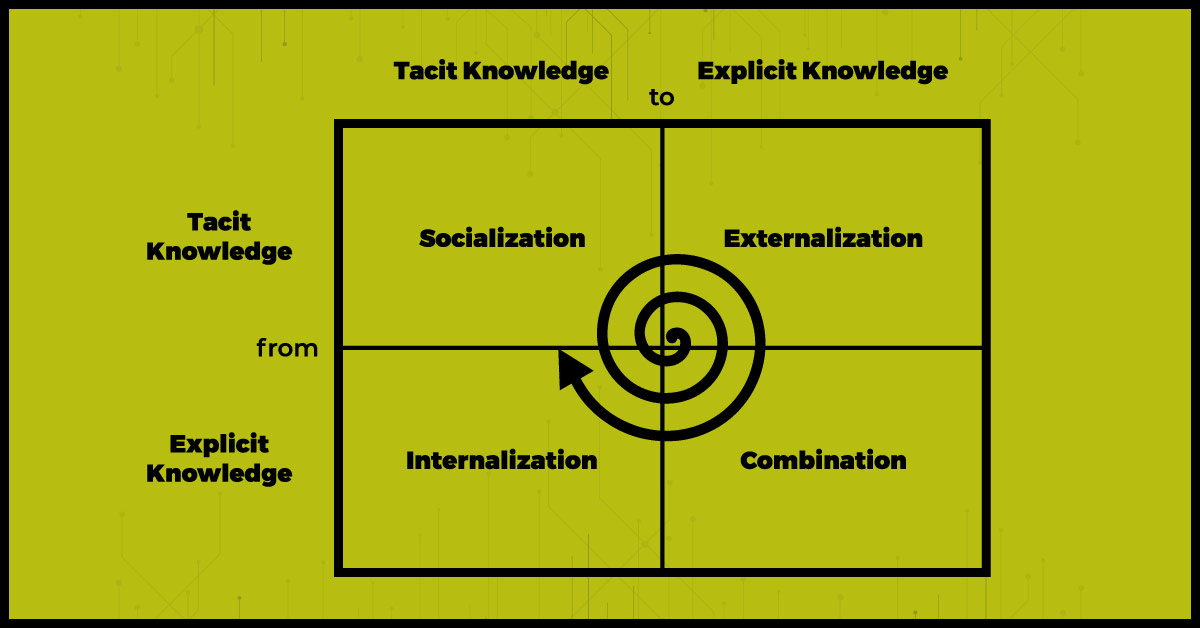The Impact of Socialization and Tacit Knowledge on Blockchain Education
With the economy embroiled in a historic COVID-induced downturn, it may be hard to believe that job openings in a few select fields have increased over the last few months. According to Forbes, jobs for blockchain and cryptocurrency on the job-hunting site Indeed are up 9%, and remote jobs for those field are up 42%. This could be critical news to universities as students are graduating into the most difficult labor market in generations. In general, though, students are ill-prepared for this career choice. So, how can academic institutions prepare current and future students for more technically demanding jobs in areas like blockchain? By doing what they do best: teach. Let’s discuss:
The importance of developing Tacit Knowledge
Digital technologies in general and particularly Blockchain are conceptually abstract, with several moving parts, from decentralized databases, digital wallets, encryption, consensus algorithms, append-only ledgers, hashing, and others. The challenge of learning such abstract and complex concepts is that traditional classroom-based learning and content falls short if it isn’t complemented by a “high touch” effort to develop tacit knowledge. Tacit knowledge is the internalized, non-codified knowledge that is cultivated through usage and application. Moreover, it may be helpful to visit the work of legendary Japanese management professor: Ikujiro Nonaka and his theory of the Knowledge Spiral. For the uninitiated, Nonaka’s Knowledge Spiral is a theory that there are four dimensions of knowledge development in organizations:
-
-
-
-
-
-
-
Tacit to tacit (Socialization)
-
Tacit to explicit (Externalization)
-
Explicit to explicit (Combination)
-
Explicit to tacit (Internalization)
-
-
-
-
-
-
Ikujiro Nonaka’s Knowledge Spiral Click to Download
Nonaka posited that as we learn, we move through these four dimensions. Tacit knowledge is developed by internalization, which is driven by usage and action more so than formalized training. And in an abstract- heavy field like blockchain where you simply cannot learn how it works solely by reading about it, so the hands-on approach is optimal for education. It’s critical that real usage and practicum-based learning serves as a complement to traditional classroom—whether the setting virtual or offline-based learning. Moreover, with the current covid crisis accelerating many universities moving towards partial or complete online learning, it’s more valuable than ever that the learning approach be “online friendly” or even “online native” if possible, during uncertain times.
With digital and other technologies driving the 4th Industrial Revolution, the importance of both the socialization of knowledge and the development of tacit knowledge is more critical. Moreover, within Industry 4.0, Blockchain is probably even more dependent on socialization and tacit knowledge, due to both the abstract-heavy and collaborative nature of blockchain’s core property: decentralization.
Importance of Low Code Tools
Of course, the challenge with practical usage in a complex, technologically advanced discipline like blockchain is getting someone who is new to the tech or only moderately familiar with it to deeply engage. This is why we believe a low-code platform may offer a viable path, as it lowers the barrier to entry for someone who is curious about the technology but doesn’t have the expertise to program in it just yet.
Before we close, let’s discuss the multidisciplinary aspect behind this. Based on the latest research on university blockchain education programs, approximately 70% of the studies are coming from outside computer science curricula. This is a good thing, as analysts from Gartner to McKinssey have said that for blockchain to accelerate adoption, more domain specific conversations need to happen, otherwise, the field continues to be something of an echo chamber dominated by pure technologists. It’s been 80/20 the wrong way and it needs to be at least partially reversed. By opening blockchain curriculum to other areas of study like law, business and humanities, schools provide the opportunity for students to introduce their own, fresh ideas into blockchain technology.
